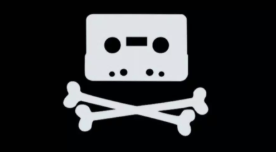 Early 2010, the online piracy ecosystem looked entirely different from what it does today.
Early 2010, the online piracy ecosystem looked entirely different from what it does today.
IPTV and pirate streaming boxes had yet to reach the masses. Limewire was still the preferred piracy app for millions, while torrent sites such as BTJunkie, isoHunt and Mininova were dominating in terms of traffic.
Today, Limewire is a distant memory and the aforementioned torrent sites have all gone. Many other things have changed too. In this article, we will highlight some of the most pivotal events of the past ten years.
Bear in mind that this is by no means an exhaustive overview. It does, however, show that much has changed over the past ten years.
2010
The decade started with positive news for Alan Ellis, the operator of the defunct private music tracker OiNK. The jury returned a unanimous not guilty verdict and Ellis walked free.
Not much later the final verdict in The Pirate Bay case was revealed. The Swedish Court of Appeal sentenced Peter Sunde to eight months in prison, Fredrik Neij received a 10-month sentence, and Carl Lundström four months. Pirate Bay co-founder Gottfrid Svartholm did not appear but was later sentenced to a year in prison.
Later that year there was bad news for Jammie Thomas-Rasset, a mother of four, who lost her case against the RIAA. Following a re-trial, Thomas-Rasset was ordered to pay $1.5 million for 24 songs she shared via Kazaa. This verdict was appealed and eventually reduced to $222,000 by the Appeals Court.
In October a US federal court also sided with the RIAA in its battle against the Gnutella-based download client LimeWire. The world’s most popular file-sharing application shut down soon after.
In November 2010, the US Government launched “Operation in Our Sites,” through which it seized several domain names of alleged pirate sites including torrent search engine Torrent-Finder. Years later, the DoJ also dropped its case against the torrent search engine and returned the domain name.
Another domain that was targeted by the feds was from Ninjavideo. This eventually resulted in several criminal indictments. Operation In Our Sites continued throughout the rest of the decade, taking down millions of domain names, mostly related to counterfeiting.
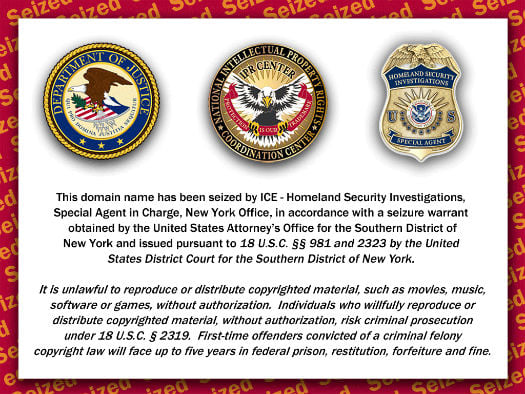
2010 also marked the start of the so-called ‘copyright-trolling’ lawsuits against alleged BitTorrent users in the US, which are still ongoing today. The first lawsuits, including one from the makers of The Hurt locker, targeted tens of thousands of people at once.
2011
After pressure from the entertainment industries, Google started to censor piracy-related keywords from its instant and autocomplete services. Keywords such as “The Pirate Bay” and “RapidShare” were excluded. This marked the start of a series of anti-piracy initiatives, including downranking of pirate domains in search results.
In March, President Obama’s “IP Czar” Victoria Espinel laid the foundations for PIPA and SOPA, calling on Congress to make changes in order to make it easier to clamp down on copyright infringement. Both bills were heavily protested in the months that followed.
Europe witnessed one of the largest piracy-related busts in history. The popular movie streaming portal Kino.to was shut down and a dozen people connected to the site were arrested.
Richard O’Dwyer, the then 23-year-old UK-based administrator of TVShack was arrested by police. In the year that followed, the admin successfully fought off an extradition request from the U.S.
Megaupload released the Megaupload song, where superstar artists including P Diddy, Will.i.am, Alicia Keys, Snoop Dogg, and Kanye West promoted the site.
2012
The new year started, with the historic SOPA and PIPA protests that carried over from 2011. Eventually, both bills were defeated.
News headlines were also dominated by the Megaupload raid and the indictment against the “Mega Conspiracy.” The criminal investigation disrupted the file-hosting business and today, Kim Dotcom and several former colleagues still await the final decision regarding possible extradition to the US.
BTjunkie, one of the largest BitTorrent indexes at the time, decided to shut down voluntarily. A combination of legal actions against fellow file-sharing sites and time-consuming projects was cited as reasons for the drastic decision.
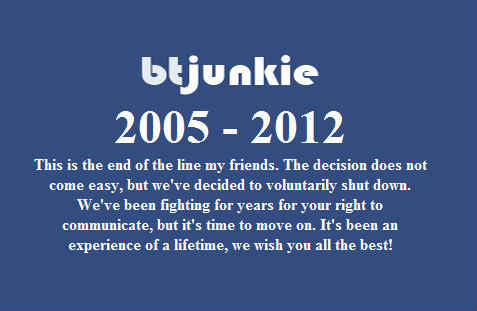
The founder of NinjaVideo, one of the first domains to be targeted in the ongoing Operation in Our Sites campaign, was sentenced for conspiracy and criminal copyright infringement. Hana Beshara, was sentenced to 22 months in prison. Several other accomplices received lesser sentences.
The Pirate Bay made dozens of headlines as well. The infamous BitTorrent site removed torrents for popular releases and moved to the .SE domain name to avoid a possible US domain name seizure, which never came.
The Pirate Bay was also blocked by UK ISPs following a High Court order. Nonetheless, the site saw a huge increase in traffic.
2013
The Motion Picture Association won its piracy lawsuit against file-hosting site Hotfile, which agreed to pay a $80 million settlement. However, this figure mostly served to impress and scare the public, as both parties settled the matter for ‘only’ $4 million behind closed doors.
Kim Dotcom launched Mega as the successor to the defunct Megaupload. Mega billed itself as “The Privacy Company” and remains popular today despite the fact that its founder cut ties with the file-hosting service.
The MPAA and RIAA, helped by five major Internet providers in the United States, launched their “six-strikes” Copyright Alert System. After five or six warnings ISPs could take a variety of repressive measures to deter pirates. The system eventually shut down four years later.
Netflix revealed that piracy is more than a competitor. The company’s then Vice President of Content Acquisition revealed that they keep an eye on what’s popular on file-sharing platforms to determine what TV-series to buy. This apparently worked well, as Netflix also mentioned that it was killing BitTorrent traffic.
Torrent search engine isoHunt settled its legal battle with the MPAA for $110 million. The site’s owner, Gary Fung, decided to throw in the towel after fighting Hollywood for several years. Soon after the shutdown a copycat site appeared, which took over many of the site’s regular visitors.
Law firm Prenda was caught uploading their own torrents to The Pirate Bay, creating a honeypot for the people they later sued over pirated downloads. The accusation was first published here on TorrentFreak, based on input from the Pirate Bay. This would later turn into a criminal case.
2014
A new app named Popcorn Time became an instant hit by offering BitTorrent-powered streaming inside an easy-to-use Netflix-style interface. After being chased by lawyers, developers shut it down after a few weeks, saying that they wanted to move on with their lives. By then the app had been forked by others, which took over distribution and continued to develop the project.
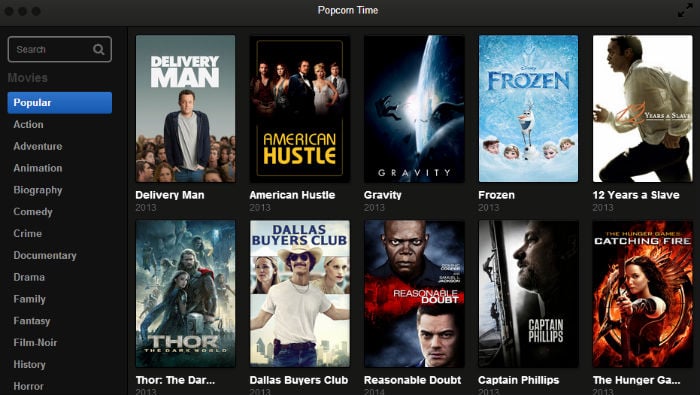
The Pirate Bay was pulled offline after Swedish police raided a data center near Stockholm. The police confiscated dozens of servers which many believed to belong to the notorious torrent site. Cryptic teasers aside, The Pirate Bay remained offline for nearly two months but later denied that police took anything useful.
The music and movie industries and several of the UK’s leading ISPs agreed on a deal to tackle Internet piracy. The arrangement would see the BPI and MPA monitoring people sharing files illegally and the ISPs sending them “escalating” warning letters. It would take until 2017 before the first warnings were sent out.
Sony was hacked, revealing all sorts of inside scoops from the company. Among other things, leaked documents revealed in detail how Hollywood planned to take on piracy in the years to come. Several unreleased Sony movies also ended up on pirate sites.
2015
Popular TV-torrent distribution group EZTV shut down. After losing key domain names and data in a hostile takeover, EZTV founder NovaKing called it quits. The group’s retirement marked the end of an era in which the EZTV brand became synonymous with TV-torrents. Today, the brand still persists, but it’s a copycat that is not affiliated with the original group.
The first four episodes of the new Game of Thrones season leaked online a day before the official premiere. The leak triggered a download spree but the real piracy boom came a few weeks later when Game of Thrones set the all-time swarm record with 258,131 people simultaneously sharing a single torrent of the season finale. That record still stands today.
The Stockholm District Court ordered the seizure of both thepiratebay.se and piratebay.se domains, arguing that they were linked to copyright crimes. Responding to the decision, the torrent site started rotating to a bunch of new domains, including thepiratebay.GS, LA, VG, AM, MN and GD.
After being one of Hollywood’s biggest arch-rivals, YTS/YIFY signed an unprecedented agreement with the movie industry. Instead of going to trial, the MPAA signed a deal with YIFY’s operator, ending a multi-million dollar lawsuit before it really got started. The YTS/YIFY name is still out there today, but any sites carrying it have nothing to do with the original.
A federal jury ruled that Internet provider Cox Communications was responsible for the copyright infringements of its subscribers. The ISP was found guilty of willful contributory copyright infringement and ordered to pay music publisher BMG Rights Management $25 million in damages. This was the start of several similar piracy liability lawsuits.
On and before Christmas, high-quality screener copies of some of the hottest Hollywood productions appeared online. Some titles, including The Hateful Eight, even appeared before their official theatrical release. Hive-CM8, the group that was responsible for these leaks, later apologized.
2016
A criminal investigation by the U.S. Government brought down KickassTorrents, the largest torrent site at the time. As a result, millions of people were left without their favorite torrent site. A group of former site staffers later launched their own version of KickassTorrents.
Torrentz.eu, one of the world’s largest torrent sites, announced “farewell” to its millions of users. The meta-search engine, which hosted no torrents of its own but linked to other sites including The Pirate Bay, decided to cease its operations. Soon after, the unaffiliated Torrentz2.eu jumped in to fill the gap.

After months of domain hopping, The Pirate Bay moved back to its original .org domain. The torrent site moved away from it years earlier to avoid a possible seizure, but instead, all alternative domains were either seized or suspended.
The private music tracker What.cd, arguably the world’s most comprehensive library of digital music, shut down. The site went offline after several of its servers were raided by French military police. The local music industry group SACEM later confirmed that the law enforcement efforts were part of a criminal investigation.
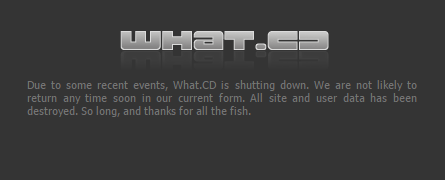
Two principals of the copyright-trolling Prenda law firm were arrested by the feds. The duo were charged with conspiracy to commit fraud, money laundering, and perjury. As mentioned earlier, The Pirate Bay played a key role in the case.
A new report from piracy tracking firm MUSO revealed that the piracy landscape continued to evolve. There was a clear shift from torrents to direct download and streaming sites. Interestingly, traffic to private trackers remained relatively stable.
Pirate streaming boxes and the Kodi media player software began making headlines. In the UK, police carried out raids targetting several resellers. Concerned about piracy, the Kodi team announced legal action against those who use its name to promote infringing activity. Soon after, Kodi itself was banned by Amazon over piracy concerns.
2017
Torrent site ExtraTorrent shut down ‘voluntarily.’ The abrupt decision was announced in a brief message posted on the site’s homepage and came as a complete surprise to many friends and foes. ExtraTorrent’s distribution groups ettv and EtHD remained active and launched their own website.
Several prominent entertainment industry organizations launched the Alliance for Creativity and Entertainment (ACE), a huge anti-piracy coalition featuring not only MPAA members, but companies like Amazon, Netflix, CBS, HBO, and the BBC. In the years that followed, the group filed several lawsuits against pirate streaming box vendors including TickBox and Set-TV.
Popular anime torrent site NYAA lost control over several of its domain names. Several people later pointed out that NYAA’s owner had decided to close the site voluntarily.
YouTube-MP3, the world’s leading YouTube-ripping site at the time, agreed to shut down and hand over its domain to the RIAA. A private settlement agreement, including an undisclosed payment, put an end to the copyright infringement lawsuit filed by several major record labels a year earlier.
Mininova, once the biggest torrent site on the Internet, decided to shut down. The site had lost nearly all of its traffic after a Dutch court ordered it to remove all copyright infringing torrents in 2009.
The Pirate Bay started using the computer resources of its visitors to mine Monero coins. This resulted in a heated debate. Supporters saw it as a novel way to generate revenue and an opportunity to replace ads, while opponents went out of their way to block the mining script.

Sci-Hub, often referred to as the “Pirate Bay of Science,” lost two court battles. Following a $15 million defeat against Elsevier, the American Chemical Society won a default judgment of $4.8 million in copyright damages. Despite the verdicts, the site remains widely accessible today.
The streaming piracy threat really became apparent when the Motion Picture Association described illegal streaming devices as “Piracy 3.0.” These devices offer a Netflix-like experience to consumers, but without rightsholders getting paid.
Kodi add-on repository TVAddons disappeared. It later became clear that the site’s founder was being sued in the US and Canada. The US lawsuit filed by Dish Networks was settled but the Canadian action remains ongoing.
After the initial disappearance, TVAddons returned with a more curated site.
2018
Demonoid went offline. During the summer the site started to suffer downtime and later on it vanished completely. The site’s owner, Deimos also went missing around the same time. A few months later we heard that Deimos had passed away.
Nintendo filed a complaint at a federal court in Arizona, accusing LoveROMS.com and LoveRETRO.co of massive copyright and trademark infringement. The operators, a married couple, eventually agreed to a $12 million settlement in favor of the game developer.
The ad-free and privacy-focused torrent site “SkyTorrents” became a victim of its own success. With millions of pageviews per day, the site was too expensive to manage, leaving the operator with no other option than to shut it down.
Terrarium TV – one of the most-loved ‘pirate’ applications for Android – ceased operating for good. Developer NitroXenon later informed TorrentFreak that, if required, he’d give up user data to the authorities.
The copyright trolling epidemic remained ongoing, but there is pushback as well. The Ninth Circuit Court of Appeals reached a verdict in Cobbler Nevada v. Gonzales. The Court ruled that identifying the registered subscriber of an IP-address by itself is not enough to argue that this person is also the infringer. The order also affected several other cases.
2019
A group of former Demonoid staffers launched a new torrent site to keep the legacy of founder Deimos alive. While the original Demonoid is not coming back, the new site aims to offer a new home to those who miss the defunct torrent tracker.
As detailed just a few days ago, 2019 also saw numerous enforcement actions and shutdowns against pirate sites and services. The most prominent, including those targeted at Xtream Codes, Openload, Gears Reloaded, Cotomovies, and Vader are detailed here. These actions also show an increased focus on streaming sites and apps, including IPTV.
Two attorneys behind the controversial ‘copyright trolling’ law firm Prenda were found guilty. They were the masterminds behind the fraudulent scheme that extracted settlements from alleged pirates. They repeatedly lied to the court and operated a pirate honeypot.
John Steele was sentenced to a five-year prison term and Paul Hansmeier received a 14-year sentence, which is under appeal.
Disney launched its new streaming platform which immediately gained millions of subscribers. While more legal platforms may sound positive, there are also concerns that more fragmentation will do little to curb piracy. Instead, people may be tempted to return to unauthorized sites and tools, as they can’t or don’t want to sign up for a handful of subscription services.
At the and of a decade where the piracy masses moved from direct downloading and torrents to streaming-based tools, none other than The Pirate Bay appears to have jumped on the streaming bandwagon as well. The notorious torrent site now links to the new streaming service Baystream, which allows people to stream videos directly in the browser.





